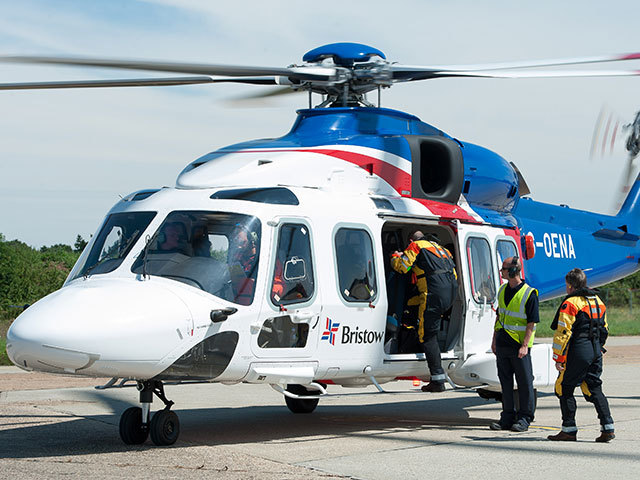
The North Sea was reminiscent of the Wild West, according to the British Airline Pilots’ Association’s (BALPA) General Secretary Jim McAuslan.
The union leader said a supply squeeze on costs was now affecting pilots’ safety.
“It’s still the wild west in the North Sea – in the UK part of it,” he said.
“They don’t have this issue in the cull that’s taking place in the Norwegian part of the North Sea, so there’s something very cavalier about the way it’s being handled in the North Sea.”
McAuslan added the timings of the cuts left unfinished business in sector.
“In the CAA’s CAP-1145 report, Chapter 13, helicopter companies spoke about the squeeze taking place on costs and the lack of any ability to invest in new equipment and have some resilience,” he said.
That culture still exits, according the McAuslan.
He has since called on the helicopter companies to bring a better offer to the table or risk facing strike action.
“I think there’s a resolve among the pilots about this 25% cut. But they also realise this might not be the end of it so they are drawing a red line,” he said.
“They are saying if we don’t do this now it might be death by a thousand cuts.”
A CHC spokesperson said: “Even while the oil and gas industry faces a challenging time, our commitment to safety remains our top priority.
“We employ only the most highly trained pilots, in the North Sea and around the world. Our pilots have qualifications and training that exceed the strict regulatory and industry standards and we have the utmost confidence that they continue to be committed to operating in the safest manner at all times.
“We believe BALPA is doing their members a great disservice to suggest they would behave with anything less than total professionalism in the cockpit. We have not had any such concerns reported by our pilots, who are well aware of their obligation to report safety issues. We continue to be focussed on conducting a thorough and fair consultation, working with employees and unions, and supporting those who are affected.”
Chief executive of Oil & Gas UK Deirdre Michie called on the industry to “reject conflict” and rally round a fair solution.
She said: “In light of the damage to competitiveness driven by rising costs and exacerbated by the falling oil price, companies on the UK Continental Shelf have been working hard to improve efficiency and reduce expenditure. Regretfully, this transformation is not without difficult decisions having to be made, but this focused approach and concerted action is beginning to yield results which will help to restore the attractiveness of the basin.
“However, there is still a long way to go. The lower and volatile oil price demands the sector becomes more efficient if we are to weather the downturn, and emerge in competitive shape, capable of again offering an attractive investment proposition. Safe operations must not be compromised at any stage of the process.
“As we work through these challenging times, it is important that any changes are implemented as constructively as possible to minimise the impact on those affected.
“We urge all stakeholders in this great UK industry – companies, unions and employees alike – to reject conflict and work together to avoid industrial action which would only serve to further undermine the sector’s future in terms of jobs, investment, innovation and energy security for the long-term.”
More to follow.
